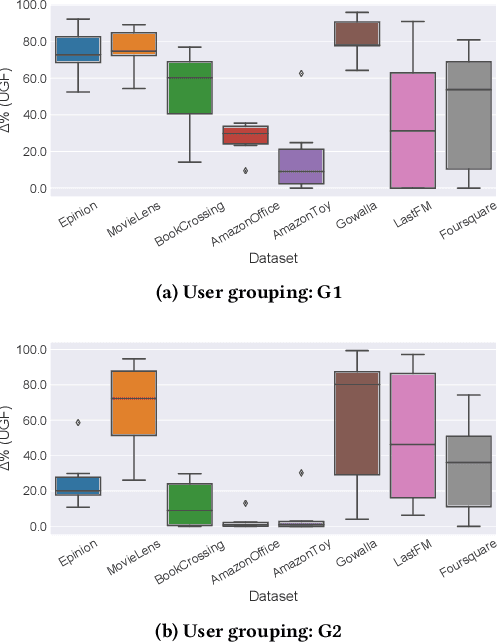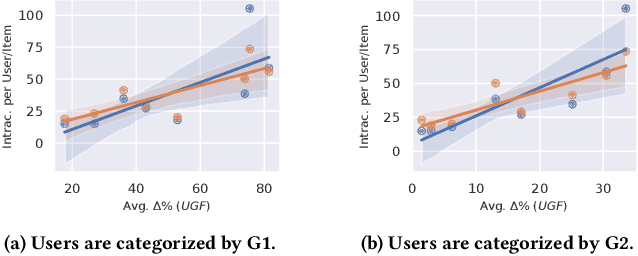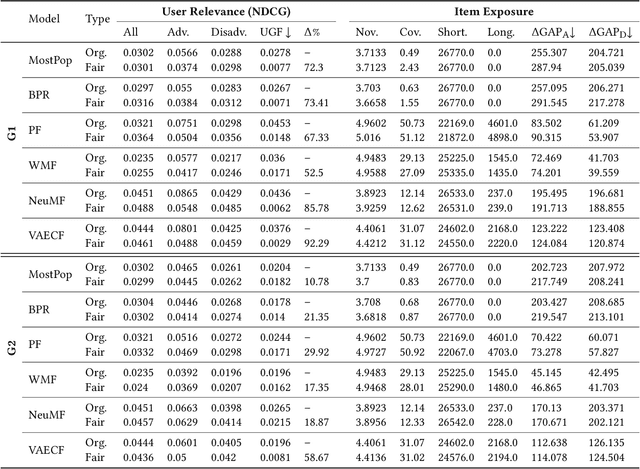Experiments on Generalizability of User-Oriented Fairness in Recommender Systems
Paper and Code
May 17, 2022



Recent work in recommender systems mainly focuses on fairness in recommendations as an important aspect of measuring recommendations quality. A fairness-aware recommender system aims to treat different user groups similarly. Relevant work on user-oriented fairness highlights the discriminative behavior of fairness-unaware recommendation algorithms towards a certain user group, defined based on users' activity level. Typical solutions include proposing a user-centered fairness re-ranking framework applied on top of a base ranking model to mitigate its unfair behavior towards a certain user group i.e., disadvantaged group. In this paper, we re-produce a user-oriented fairness study and provide extensive experiments to analyze the dependency of their proposed method on various fairness and recommendation aspects, including the recommendation domain, nature of the base ranking model, and user grouping method. Moreover, we evaluate the final recommendations provided by the re-ranking framework from both user- (e.g., NDCG, user-fairness) and item-side (e.g., novelty, item-fairness) metrics. We discover interesting trends and trade-offs between the model's performance in terms of different evaluation metrics. For instance, we see that the definition of the advantaged/disadvantaged user groups plays a crucial role in the effectiveness of the fairness algorithm and how it improves the performance of specific base ranking models. Finally, we highlight some important open challenges and future directions in this field. We release the data, evaluation pipeline, and the trained models publicly on https://github.com/rahmanidashti/FairRecSys.
 Add to Chrome
Add to Chrome Add to Firefox
Add to Firefox Add to Edge
Add to Edge